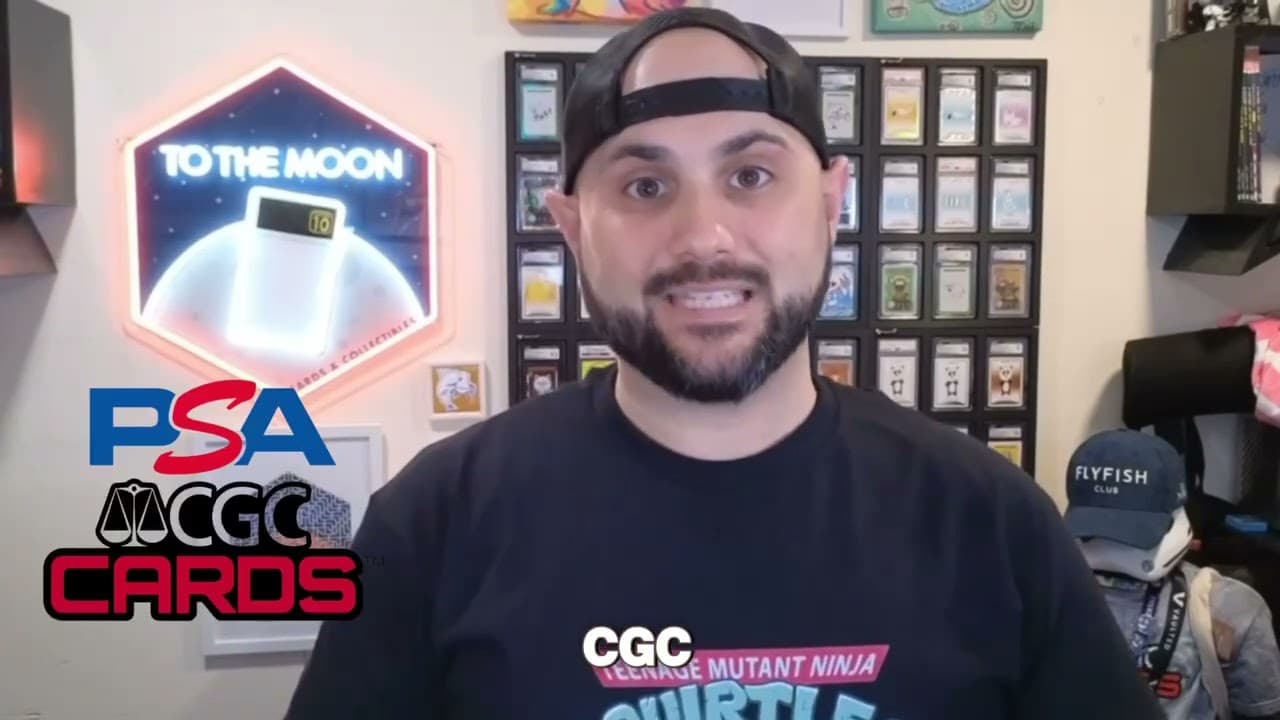How to Grade Your Vibes TCG Cards

Grading Your Vibes TCG Cards: A Comprehensive Guide
Welcome to another deep dive into Vibes TCG, the hottest new trading card game emerging from Web3 and built on the Pudgy Penguins IP! In this article, we’re exploring card grading, an essential aspect of the collectible side of Vibes. Whether you're looking to enhance your collection, preserve rare pulls, or maximize resale value, grading your cards is an excellent way to maintain long-term value.
Today, we’ll break down:
What cards are worth grading
How to prepare and submit your cards
Choosing between CGC and PSA
Understanding grading factors and resale value
Let’s get into it!
Which Vibes TCG Cards Should You Grade?
In Vibes TCG, cards generally fall into two categories: playable and gradable.
Playable Cards: These are cards frequently used in decks for gameplay. Since they see a lot of handling, they are generally not worth grading.
Gradable Cards: These are the purely collectible cards, typically foil cards and high-rarity cards.
Foil Cards Are a Must-Grade
Every pack of Vibes TCG contains one foil card. A foil card is an identical version of a base card, but with a holographic shimmer, making it significantly rarer.
For example:
Unmasked Penguin
 – The base card
– The base cardUnmasked Penguin
 (Foil) – The collectible version
(Foil) – The collectible version
Both cards perform the same function in the game, but the foil version is far more valuable, making it a prime candidate for grading.
Understanding Rarities and Their Grading Value
Vibes TCG has several rarities:
Commons
Uncommons
Rares
Epics
Sketch Cards (Ultra Rare)
Sketch Cards: The Ultimate Chase
Sketch Card – Only 2,000 exist in circulation out of over 4 million cards.
One raw (ungraded) Sketch Card recently sold for $5,000.
Grading a high-quality Sketch Card can significantly increase its value.
Epic Foils: Another Must-Grade
Epic Foil Card – Epic foil cards are also rare and highly valuable.
If you pull an Epic Non-Foil, it’s a judgment call: some may have value due to popularity.
Example: Luca Saves the Penguins
 is the most valuable Epic in the current set.
is the most valuable Epic in the current set.
Set Collecting
Some collectors may want full sets of specific foils (e.g., a complete “Saucy” foil set). If you plan on selling sets, grading is a great way to increase their value.
Preparing Your Cards for Grading
Once you've chosen which cards to grade, the next step is properly preparing them to avoid damage.
Steps for Packing Cards:
Sleeve the Card – Place the card in a penny sleeve (a thin, flexible plastic sleeve).
Top Loader or Card Saver – Insert the sleeved card into a Top Loader or Card Saver.
Use a Post-It Tab (Optional, but recommended!) – Attach a small sticky note to the sleeve for easy removal by the grader.
Secure in Shipping Protectors – Use Hobby Armor or cut-up cardboard to keep cards from bending.
Use a Bubble Mailer or Box – If shipping multiple cards, a box is recommended.
Choosing a Grading Company: CGC vs PSA
Two major companies dominate the card grading space: CGC and PSA. Let’s go through the submission process for each.
Submitting to CGC
Go to CGCcards.com and start a new submission
Choose Your Grading Tier:
Bulk (25+ cards, max $500 value per card)
Economy (No minimum, max $1,000 value per card)
Standard & Express (Faster turnaround)
Enter Your Card Information:
Search for your card in the database.
Example: If grading Unmasked Penguin
 (Foil), select the foil version.
(Foil), select the foil version.Assign an estimated value for insurance purposes.
Review, Print Packing Slip, and Ship
Include the packing slip in your package.
Turnaround times vary from 45 days (Bulk) to 5 days (Express).
Submitting to PSA
Go to PSAcard.com and start a new submission
Select Your Grading Tier:
Bulk requires a Collector’s Club membership.
Value Tier (45 business days, no membership required).
Search for Your Card and Select the Correct Version
Example: Choose Unmasked Penguin
 (Foil) if submitting a foil.
(Foil) if submitting a foil.
Print Packing Slip and Ship
Just like CGC, include a packing slip to match your order to your cards.
Understanding Card Grading Factors
Both CGC and PSA grade cards on the following factors:
Edges – Clean cuts without whitening.
Corners – Sharp corners without fraying.
Surface – No scratches or print defects.
Centering – Borders must be evenly aligned.
Key Differences in Grades
CGC Pristine 10 – Nearly flawless.
PSA Gem Mint 10 – Top grade for PSA.
A 9 vs 10 makes a massive difference in resale value.
Example: Price Impact of Grades
A PSA 10 may sell for 5x more than a PSA 9.
PSA 8 or lower? – Usually worth about the same as an ungraded card.





